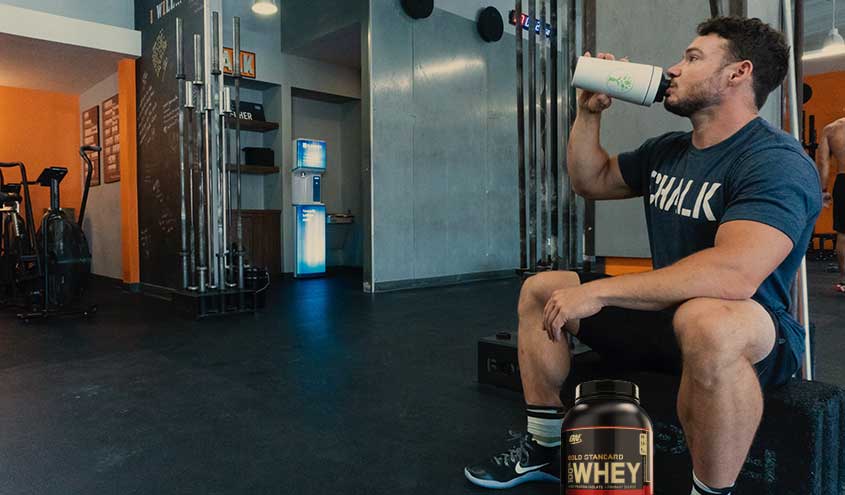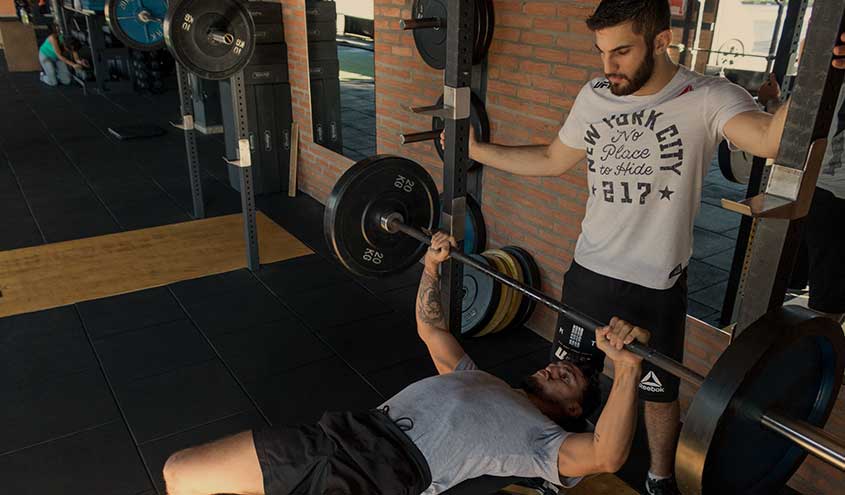The Science Behind Protein: How much should you consume to optimise recovery?
Dr. Crionna Tobin, PhD , Optimum Nutrition In-house Nutrition Expert
Protein plays a vital role in facilitating muscle growth while also plays an important part in the optimal repair and recovery of the muscle after exercise.
How does protein support recovery?
Each time you exercise your muscle is damaged to some extent depending on its intensity and duration. This is an important part of adapting to your training session as it allows the muscle to remodel into a leaner, faster, stronger and/or fitter muscle fibre.
Protein which is broken down into amino acids in the body plays an important role in providing essential building blocks to the damaged muscle allowing it to repair and rebuild after each training session. As the body does not store protein consuming high quality protein around exercise is central to providing the muscle with the key elements it needs to optimise recovery.
How much Protein should I consume?
It is well established that athletes require a higher daily protein intake of between 1.2-2.3 g/kg of protein compared to non-exercising individuals to facilitate recovery and training adaptations. It is quite normal for athletes to consume at least 2-4 times more protein than a non-exercising athlete to support training goals.
Traditionally, strength and power athletes consumed high protein diets while endurance and team sport athletes consumed low and moderate levels of daily protein intakes respectively. However, it is now recognised that endurance and team sports athletes also need an increased level of protein intake to support their training and performance goals. In fact anyone who exercises intensely for more than 60 minutes 3 times or more weekly should increase their intake of protein to support their body’s ability to recovery after the training session.
Protein recommendations for a sedentary individual are 0.8g of protein per kilo of body weight to maintain protein balance and muscle mass. This equates to approximately two medium sized lean chicken filets per day for an average 75kg male. However, for the exercising individual, this protein requirement can increase to an approximate protein intake which equates to at least 5 ½ chicken fillets. In addition to ensuring you get the right amount of carbohydrate and fat this can lead to a lot of eating. Consequently, supplementing with high quality protein throughout the day is a good way to hit your daily protein intake.
What Protein Supplements should I consume to support recovery?
Whey protein is the best protein to choose for fast delivery of amino acids to the muscle before and/or after training to support recovery nutrition. Although food should always your first choice for consuming appropriate recovery nutrients it is not always possible after training due to the lack of desire to eat or the proximity of the kitchen to the track. In these instances Gold Standard 100% Whey™ Protein is the perfect solution as it will allow you to time your protein intake as close to the end of your session as possible optimising your recovery potential
Casein is an additional protein type which may be used to optimise recovery. During the night, the body goes for long periods without food and muscle protein beings to breakdown to be used as energy. Using protein for energy and not for muscle repair and rebuilding can hamper your recovery and in some instances lead to delayed onset muscle soreness (DOMS) the next morning. Gold Standard 100% Casein™, which breaks down more slowly, will help feed the muscles while you sleep. Studies have found that feeding 40g of casein before bedtime is an effect dietary recovery strategy to stimulate muscle repair improving the muscles ability to adapt to training.
Take Home Message
Everyone who exercises intensely for more than 60 minutes, 3 times weekly should increase their protein intake. Consuming high quality whey protein, such as Gold Standard 100% Whey™ protein around exercise is a great solution to ensure delivery of protein to the muscle to support your recovery goals and training adaptations. Gold Standard 100% Casein™, also contributes to recovery by feeding the muscle with amino acids while you sleep.
References
Pasiakos et al, 2014. Effects of protein supplementation on muscle damage, soreness and recovery of muscle function and physical performance: a systematic review https://www.ncbi.nlm.nih.gov/pubmed/24435468
Kerksick CM et al., 2017. International society of sports nutrition position stand: nutrient timing.https://www.ncbi.nlm.nih.gov/pubmed/28919842
Jager R., 2017. International society of sports nutrition position stand: Protein and exercise. https://www.ncbi.nlm.nih.gov/pubmed/28642676



